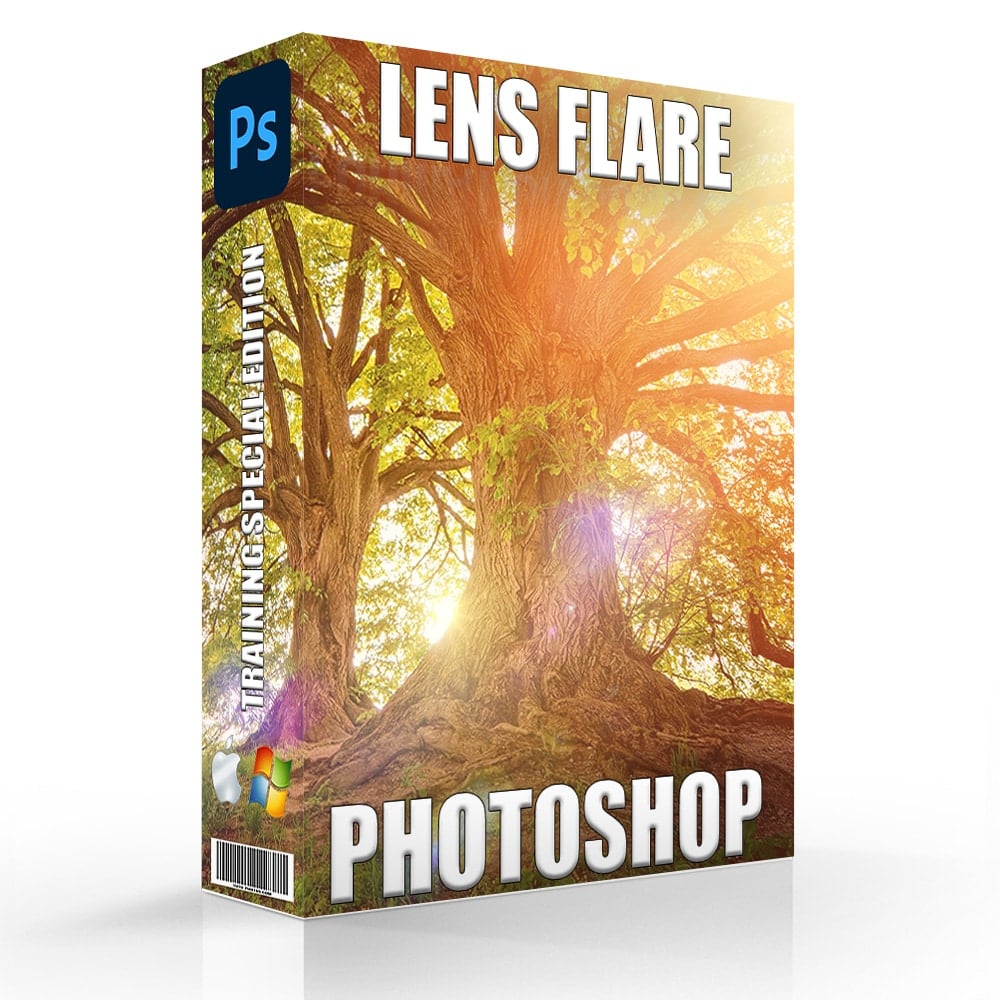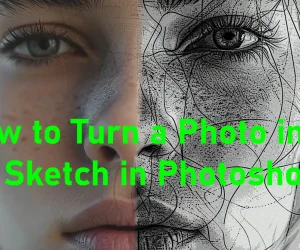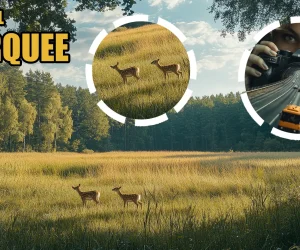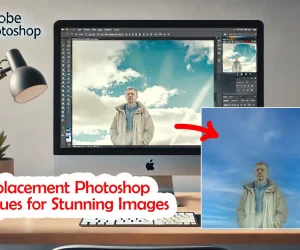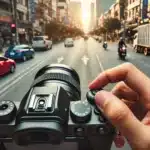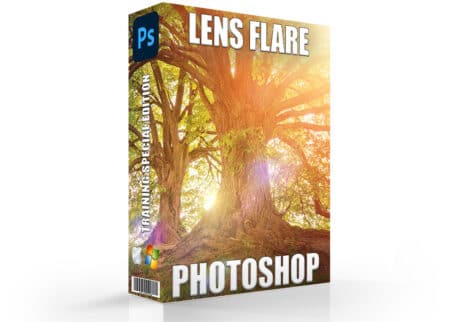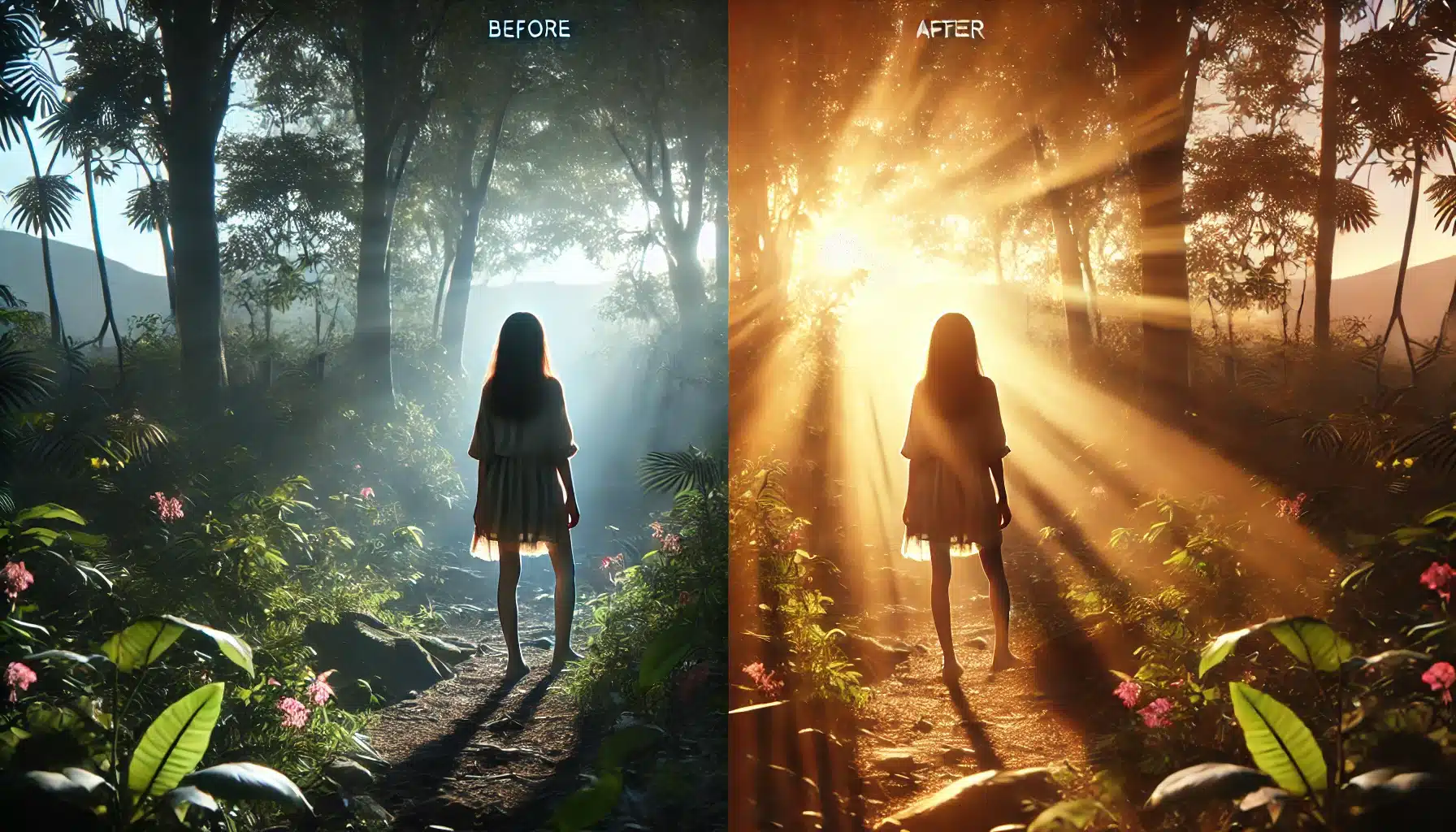
Introduction to Lens Flare in Photoshop
Lens flare can transform an ordinary picture into something extraordinary by adding a touch of brightness and drama. But what exactly is lens flare? Simply put, it’s a phenomenon in shooting where light scatters in a lens system, often producing a desirable glowing effect on the picture. This effect can be replicated digitally in Photoshop to enhance photographs, even if the original shot didn’t capture any actual light flare. In this guide you’ll learn how to add lens flare in Photoshop and how Photoshop Lens Flare can take your editing process to the whole next level.
Imagine you took a picture of a friend walking in a park at sunset. The scene is beautiful, but the picture lacks the warm, magical glow of the sunlight you remember. By using this technique, you can bring back that sunset photograph warmth. You can precisely place a soft, golden flare near the sun in the picture, making your picture look as radiant as the actual moment felt. Enhance your images by mastering lens flare in Photoshop, a skill that can also be applied creatively in Lightroom for stunning visual effects.
Table of Contents
Step-by-Step Guide to Adding Lens Flare
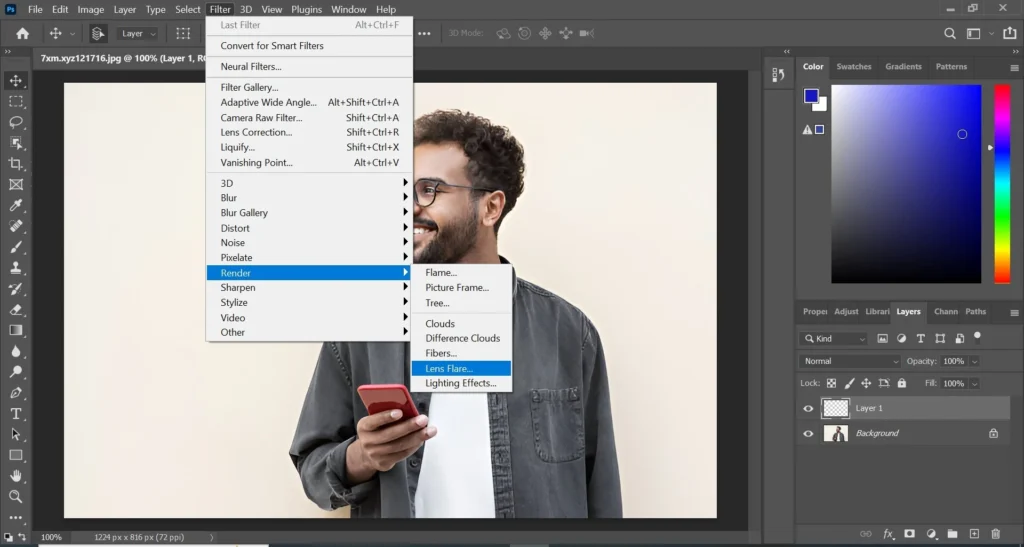
Select the Right Image
Before you start adding lens flare in Photoshop, choose a picture that will naturally complement this effect. This looks great in pictures with light sources like the sunlight or bright lights.
Open Your Image in Photoshop
Start by opening your selected picture in Photoshop. Go to ‘File’ then ‘Open’, and browse your computer to find and select your picture.
Add a Lens Flare Layer
To keep your original picture safe, create a new layer for this purpose. Click on ‘Layer’ at the top, click ‘New’, and then ‘Layer’. This step ensures that you can edit the lens flare and light effects without altering the first picture.
Applying the Lens Flare
Go to the ‘Filter’ menu, choose ‘Render’, and then add ‘Lens Flare’. A new window appears where you can choose the type of lens flare and adjust its position and intensity. Move the flare around until you find the perfect spot for it.
Adjust the Lens Flare
Once you’ve placed the lens flare, you can set its brightness and blending settings to make it look more real. Add the lens flare layer, and experiment with different settings in the ‘Layers’ panel to blend it seamlessly into your picture.
Final Touches
Check your picture from different angles and set the opacity of the lens flare layer if necessary. Sometimes reducing the opacity helps in achieving a more subtle and natural effect.
By following these steps on how to add lens flare in Photoshop can enhance your images with a professional touch, giving them a realistic and eye-catching light effect.
Creative Uses of Lens Flare in Photoshop
Adding lens flare in photoshop can dramatically change the mood and impact of your photographs. Here are some creative ways to use this effect:
| Use Case | Purpose | Effect on Mood | Technique | Ideal Scenes |
|---|---|---|---|---|
| Enhancing Sunlight | Amplify natural light | Warm and inviting | Soft flare near light sources | Sunsets, sunrises, backlighting scenes |
| Highlighting Subjects | Draw attention to specific areas | Dramatic and focused | Sharp flare on subject | Portraits, insect photos, close-ups |
| Creating a Vintage Look | Add a retro or nostalgic feel | Old-school charm | Subtle, dispersed flare | Street photographs, old buildings |
| Simulating Dream Sequences | Produce a dreamy or surreal atmosphere | Ethereal and floaty | Large, bright flare | Fantasy settings, peaceful editing landscapes |
| Adding Drama to Action Shots | Intensify the dynamic feel | Energetic and vibrant | Directional flare | Sports photography, fast action sequences |
When you explore how to add lens flare in Photoshop, you open up a world of creative possibilities. Lens flare insertion in Photoshop can be tailored to suit various artistic needs. Whether you’re looking to highlight a romantic sunset with a warm glow, generate focal points in portrait photography, or add a touch of nostalgia to urban shots, the strategic use of lens flare can significantly enhance the visual appeal of your work. Each application involves placing and modifying the flare to complement the scene’s lighting and the photo’s overall tone, ensuring the result feels integrated and enhances the narrative you wish to convey.
Common Issues and Solutions with Lens Flare
Overpowering the Scene
Issue: Sometimes the lens flare can become the most dominant feature, taking away from other important elements in the picture.
Solution: To manage this, gradually reduce the opacity of the lens flare layer within PS. This allows the flare to still contribute to the overall aesthetic without becoming overwhelming. Experiment with different levels of transparency until you find a balance that complements the picture.
Unrealistic Placement
Issue: If the lens flare is positioned incorrectly, it appears unnatural as if it’s not truly part of the scene.
Solution: To resolve this, carefully reposition the lens flare. Ensure it aligns with a logical light source in the scene, such as the sun or a lamp. This alignment helps the lens flare appear as a natural extension of the light within the picture.
Color Mismatch
Issue: The flare’s colour may not harmonize with the scene’s colour palette, causing a visual discord.
Solution: Adjust the color settings of the lens flare by accessing the hue/saturation options of the flare layer. Modify these settings to align the flare’s colour with the ambient tones in the rest of the picture. This adjustment helps in blending the flare seamlessly into the overall colour scheme.
Loss of Detail
Issue: Critical details can sometimes be obscured by the lens flare, especially when it covers key features or subjects.
Solution: To mitigate this, apply a layer mask to the lens flare layer. Use a soft brush to gently erase portions of the flare that cover important details. This technique allows you to diminish the effect where necessary while preserving the integrity of both the flare and the underlying photo elements.
Flare Looks Too Artificial
Issue: The lens flare might stick out as artificially added, especially if its intensity and style do not match the scene.
Solution: When implementing lens flare in Photoshop, choosing the right blending mode for the flare layer is crucial. Blending modes like ‘Screen’ or ‘Soft Light’ can be particularly effective. These modes help the flare merge more organically with the lighting conditions of the scene, enhancing the realism of the effect. Adjust these settings while observing the interaction between the flare and the scene to achieve the most believable integration.
Optimizing Your Photos with Lens Flare Effects
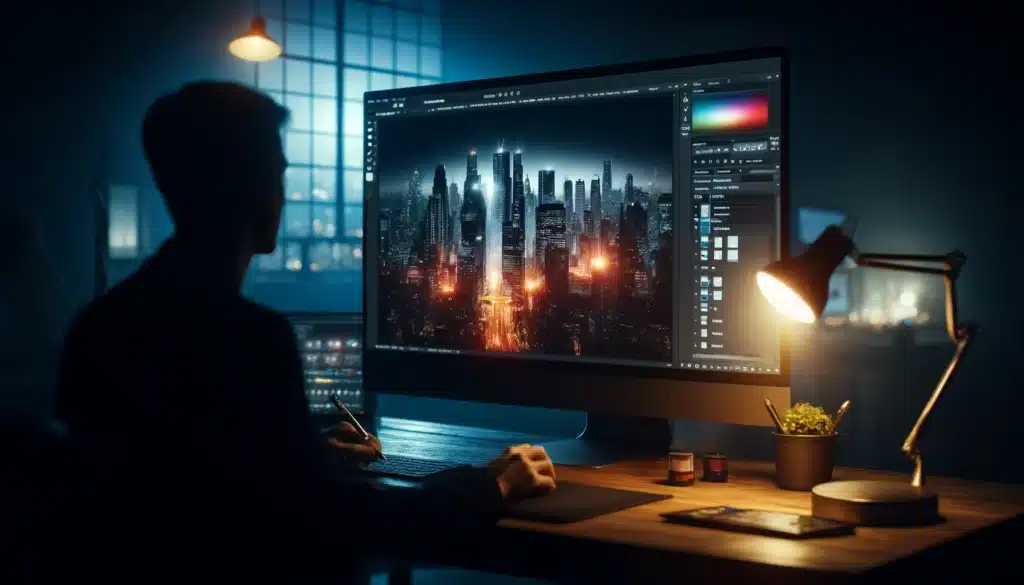
Integrating Flare for Emotional Depth
Using lens flare can infuse your scenes with emotional resonance. When added subtly, it evokes a sense of warmth or nostalgia, depending on the context. To achieve this, consider the emotional tone you want to set and modify the flare’s intensity to gently complement the scene rather than overshadow it.
Strategic Placement for Narrative Enhancement
Place the lens flare in a manner that tells a story. For example, a flare peeking from behind a building can mimic a sunrise, suggesting a new beginning, or capturing a flare from a streetlamp can enhance the ambience of an urban evening scene. The key is to place the flare where it can best contribute to the story you’re conveying.
Harmonizing with Scene Elements
Ensure that the lens flare harmonizes with other elements in the scene. This might mean matching the flare’s hue with the dominant colors in the scene or aligning its angle with the main lines and shapes in your composition. This cohesion creates a more unified and pleasing visual experience.
Experimenting with Flare Varieties
Enhancing Visual Flow
Use lens flare to enhance the visual flow across your scene. The well-placed flares can draw the viewer’s eye along a specific path, making your composition in photography not only more dynamic but also more engaging. This technique is particularly effective in landscape photography where directing the viewer’s attention can make or break the visual impact.
By creatively adding lens flare in Photoshop, you can elevate your scenes from mere images to evocative, emotionally resonant visual stories. Each flare becomes an integral part of the scene’s fabric, enriching the visual narrative without overwhelming the subtle nuances of the composition.
Advanced Techniques for Customizing Lens Flare
Utilizing Black Filters for Contrast
One technique in adding lens flare in Photoshop involves using black filters and smart filters to produce striking contrasts. Place this filter over areas you wish to keep less illuminated, ensuring that the flare pops against the darker background. This method enhances the visual impact of the lens flare without the need for complex adjustments.
Time-Based Flare Adjustments
Set the intensity and spread of the lens flare based on the time of day represented in your scene. For early morning or late evening scenes, a softer, more dispersed flare can simulate the sun’s low position in the sky. This consideration helps maintain a cohesive feel throughout your work.
Customizing with the Blur Tool
Using the Fill Function for Depth
Experiment with the fill function to make adjustment about how the flare interacts with the background elements. By altering the fill percentage, you can control the transparency of the flare, making sure it complements the overall depth of the scene without overwhelming it.
Removing Unwanted Flare Elements
Sometimes, parts of the lens flare may not contribute effectively to your scene. Use the remove tool to clean up these elements, ensuring that every aspect of the flare adds value to the final composition. This cleanup is essential for maintaining a polished and professional look.
Leveraging Adobe's Free Resources
Take advantage of the free resources available through Adobe to explore different flare styles and techniques. Adobe offers a variety of tutorials and essential tools that can help you experiment with advanced lens flare, making it easy to find new ways to enhance your scenes.
By mastering these advanced techniques for adding lens flare in Photoshop, you can ensure your scenes are both captivating and visually balanced. Experiment with these tools and techniques to discover what works great for your specific artistic goals. Mastering the advanced techniques for adding lens flare in Lightroom editing also.
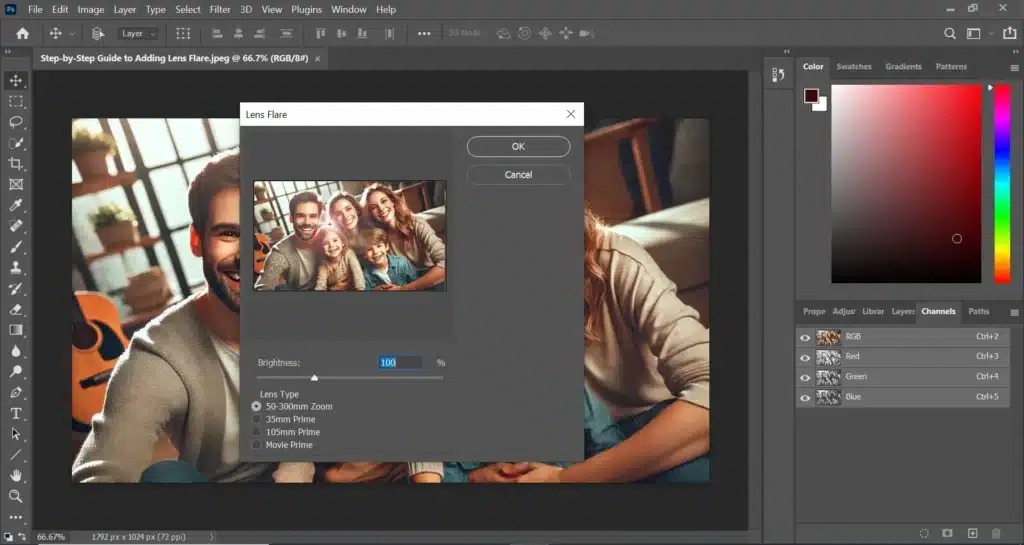
Frequently Asked Questions
Why can't I select lens flare in Photoshop?
If you’re unable to access the lens flare effect in PS, it might be due to thesettings in which your document is currently set. Some features in PS are mode-specific, and lens flare requires the document to be in RGB mode. If your document is set to CMYK or Grayscale, this could prevent the lens flare option from being available. To resolve this, switch your document to RGB settings.
How to create a lens flare?
To create a lens flare effect, start by opening your file and ensure it is in RGB mode. Then, generate a new layer to preserve the integrity of your original file. Go to the ‘Filter’ menu at the top, select ‘Render’, and then click on ‘Lens Flare’. A dialog box will appear, allowing you to choose the specific type of flare and precisely position it where you want it on your layer. You can also set the intensity to fit the scene.
What is the tool used to add lens flare effect?
The specific tool used to add a lens flare effect in Photoshop is located under the ‘Filter’ menu. Navigate to ‘Render’ and then selecting ‘Lens Flare’ from the options. which provides different styles of flares and settings that allow you to customize the look and feel of the effect.
How do you do the lens effect in Photoshop?
To achieve a lens effect, open your file and add a new layer to keep the original safe. Then, head to the ‘Filter’ menu, choosing ‘Render’, and selecting ‘Lens Flare’. This feature enables you to simulate various lens configuration by allowing you to place the flare over your scene and manage its intensity and style. This is quite versatile, offering several types of this effect that can be used to enhance the visual appeal of your work.
Adding lens flare in a picture imparts glowing and aesthetic look. With years of expertise in graphic designs, I have a created a complete course to help you add lens flare in Photoshop with perfection. This course will teach you everything you need to learn to be a perfect graphic designer and make your creations more pleasing. Take a look!
Conclusion
In my own experience, mastering how to add lens flare in Photoshop was a game changer for my digital artwork. Just last week, I was working on a cityscape that felt a bit flat and uninspiring. By adding a subtle lens flare over the street lamps in the scene, I was able to create a mesmerizing effect that dramatically enhanced the atmosphere of the picture. It turned an ordinary picture into an eye-catching piece that garnered numerous compliments.
If you’re looking to elevate your photo editing skills and explore more creative techniques like this one, consider checking out our comprehensive Photoshop course and Lightroom course. These courses are designed to help you harness the full potential of your creativity and truly transform your photos into works of art. Start your journey towards becoming a photo editing expert today!
Have a nice photoshoot!
Learn more about Photo Editing with Lightroom and Photoshop



